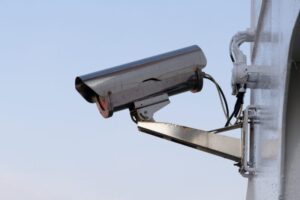
A pair of U.S. Senators, Jeff Merkley and Bernie Sanders, are proposing a nationwide version of the now famous Illinois Biometric Information Privacy Act (BIPA) that if implemented, would require private corporations to obtain the written consent of an individual before capturing and storing their biometric data.
This National BIPA could potentially serve as a major weapon for privacy advocates in the fight against face-based surveillance technology (not to be confused with face-based authentication technology) that has been growing over the past several months across the United States.
Until now – on a national level at least – that controversy has mostly been focused around whether law enforcement and government agencies should be allowed to use the technology, while leaving the legality of its use by private entities up to individual states to decide.
This has led to growing number of lawsuits filed under Illinois BIPA in recent months, with a number of high profile defendants accused of violating the privacy legislation. Just last month, social media giant Facebook brought forth a revised settlement for its BIPA case to U.S. District Court Judge James Donato after its initial $550 million offer was deemed to be too low.
Under Illinois BIPA violations carry a fine of $1,000 per negligent infraction, and $5,000 for each knowing infraction. In Facebook’s case, Judge Donato argued that the fine the company would be on the hook for if found in violation would be far greater than the originally proposed $550 million.
BIPA violations are not the only ways surveillance technologies have made their way into the spotlight recently. In January, the New York Times published a front page story about tech startup Clearview AI, revealing that the company had ‘scraped’ billions of images from the internet off of Google, Twitter, Facebook and other platforms, and used them to create a facial recognition database that it then marketed to law-enforcement agencies.
Shortly after that story was published, a security breach at Clearview saw the company’s client list stolen, revealing that it was in fact selling its services to a wide range of private enterprises and even wealthy individuals, contrary to its initial assurances that it was strictly a law enforcement tool.
“We can’t let companies scoop up or profit from people’s faces and fingerprints without their consent,” said Sen. Jeff Merkley in a statement. “We have to fight against a ‘big brother’ surveillance state that eradicates our privacy and our control of our own information, be it a threat from the government or from private companies.”
The National BIPA – modeled after Illinois’ BIPA – reportedly aims to increase consumer understanding of the reach facial recognition technology has into our lives, though no details have yet been revealed as to how closely to Illinois BIPA it was adhere with regards to financial penalties for proven violations.
Source: Vox, VentureBeat
–
August 10, 2020 – by Tony Bitzionis




Follow Us